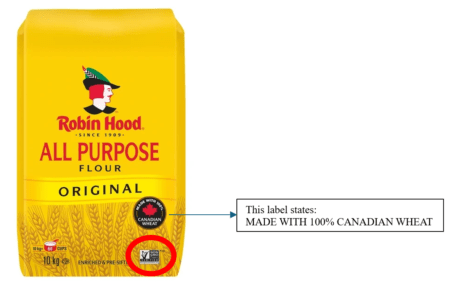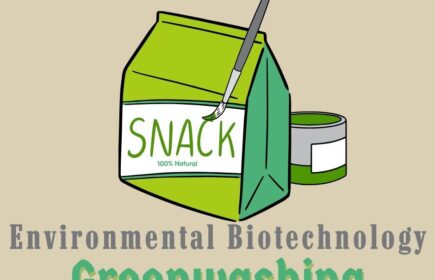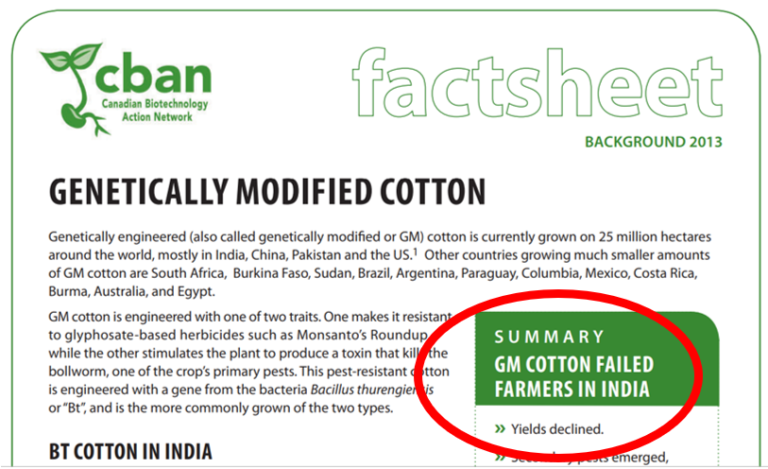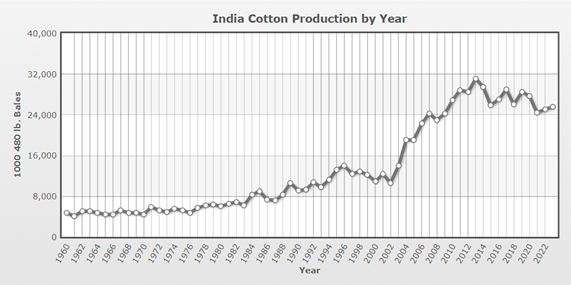On June 20th, 2024, The Fall Economic Statement Implementation Act, 2023 (Bill C-59) came into effect. The Bill covers a wide range of issues, including tax measures and policy, GHT/HST returns, excise goods measures, and a host of other provisions that got lumped together as amendments, such as labour, infrastructure, bereavement leave, Canada Water Agency Act, public post-secondary educational institutions, and a number of other measures related to competition. One interesting change is that organizations advertising or communicating about improved environmental impacts will have to have robust evidence of the claims to comply with the new Competition Act requirements. If no evidence supports the publicized claims, they will be in violation of the Competition Act and have to be removed from the advertising and/or communications. Advertising or communicating inaccurate, false, or misleading information in relation to reduced environmental impacts or benefits to mitigating climate change is known as ‘greenwashing’.
Under the updated Bill, beginning in June 2025, individuals can file applications of greenwashing with the Commissioner of Competition. Petitioners no longer need to prove their complaint, rather the onus is on the advertiser to verify their claims are substantiated and based on evidence. This Bill has enormous and negative implications for environmental non-governmental organizations (ENGOs) in regard to their campaigns of false information about the safety and benefits of biotechnology products, such as genetically modified (GM) crops, GM animals, gene editing technologies, as well as the safety of agricultural chemicals.
What Bill C-59 Competition Act changes mean
It is most likely that the changes to ensure companies and organizations communicate factual and correct information in relation to improved environmental benefits are targeted at companies in manufacturing and natural resource sectors, however, there are no stipulations to this effect. Therefore, ENGOs will also be held equally accountable for the factual accuracy of their public statements and communication content. The law firm Borden Ladner Gervais LLP has provided an excellent legal summary of the C-59 changes.
Existing legislation already prevents companies from making false claims regarding the products they produce. As an example, it’s not possible to label a food product to be free of specific ingredients that could never be in the product, such as saying beer is made from non-GM barley, which would be a deliberately false statement as there are no GM barley varieties anywhere in the world. Another example would be Robin Hood’s false labelling of flour that includes the non-GMO label as there is no GM wheat produced anywhere in Canada and the label states their flour is 100% made with Canadian wheat. This is an excellent example of how Robin Hood is greenwashing their flour, and they will be in violation of the revised Competition Act in June 2025.
Another example would be Robin Hood’s false labelling of flour that includes the non-GMO label as there is no GM wheat produced anywhere in Canada and the label states their flour is 100% made with Canadian wheat. This is an excellent example of how Robin Hood is greenwashing their flour, and they will be in violation of the revised Competition Act in June 2025.
While Bill C-59 doesn’t make changes to any of Canada’s labelling legislation, it does specifically revise the content of the Competition Act, especially as it relates to a product’s benefits and its ability to mitigate environmental impacts or contribute to climate change mitigation. Additionally, it identifies that claims of environmental benefit and/or climate change mitigations must be substantiated in line with robust methodologies. This pertains not only to companies but also to when “A person engages in reviewable conduct who, for the purpose of promoting, directly or indirectly, the supply or use of a product or for the purpose of promoting, directly or indirectly, any business interest, by any means whatever”. This revision applies to ENGOs as they are in the fundraising business, thereby all these greenwashing revisions are directly applicable to their statements about the use of pesticides and GM crops.
Making false or misleading environmental claims to the public is an offense, whereby courts can impose fines, imprisonment of up to 14 years, or both. The Commissioner may apply to impose fiscal penalties in confirmation of false information communication of up to $10 million for a first violation, rising to $15 million for subsequent violations, or three times the value of the benefit gained. If this value isn’t easily calculated, then the Commissioner can request 3% of the violator’s global gross revenues.
To bring a complaint, all that is required is for 6 Canadian residents over the age of 18 to make an application to the Commissioner for an inquiry into any false or misleading representation. The Commissioner has the authority to decide whether to launch an inquiry or not.
Looming ENGO liability
An examination of ENGO websites quickly reveals false and deliberately misleading information on every website investigated. Based on the presence of this anti-biotech greenwashing content, ENGOs definitely appear to be in violation of the legislation changes that will take effect in June 2025. However, if the content identified below is not removed from websites, it would open these ENGOs up to massive fines and possibly jail sentences.
CBAN examples of greenwashing
One of the Canadian ENGOs that is most at risk is the Canadian Biotech Action Network (CBAN), as their website is polluted with knowingly false content. There is simply too much false content to list, it would require a lengthy book to do so. One scientific aspect that CBAN greenwashes is the use of gene editing technologies. Health Canada and the Canadian Food Inspection Agency have both confirmed that the use of gene editing technologies that don’t result in any foreign DNA in the commercialized variety is conventional plant breeding, not a genetically modified crop variety. However, CBAN deliberately posts false information on their website regarding gene editing technologies. “Genome editing, also called gene editing, techniques are a type of genetic engineering, resulting in the creation of genetically modified organisms (GMOs).” Their content doesn’t appear to be based on any robust evidence and would be fully in violation of the new greenwashing requirements, as Health Canada clearly states, “Based on this review of the available information, it is Health Canada’s scientific opinion that gene-edited plant products should be regulated like all other products of plant breeding, by focusing on their final characteristics and not the method of product development”.
Posting false information is CBAN’s raison d’etre as evidenced by the image below, taken from CBAN’s webpage, and is a ‘factsheet’ on GM cotton.
Clearly, CBAN is not a supporter of GM cotton, as they claim it has “failed” farmers in India; they blatantly make the falsehood that “yields declined”. The opposite is true, the chart below provides robust evidence of increased yield. GM cotton was first adopted by Indian farmers in 2003, with production that year being 14 million bales of cotton (each bale weighing 480 lbs). In 2013, the year of CBAN’s statement that GM cotton “failed” and that “yields declined”, cotton yield in India was 31 million bales. Now, I’ve never won the Fields Medal for Mathematics, but I’m smart enough to know that 31 million is more than 14 million. In 2023, cotton production was 25.5 million bales. CBAN has had this greenwashing information on their website for the past decade and refuses to provide factual information. This clearly indicates that CBAN is guilty of environmental greenwashing.
There's ample ENGO greenwashing in Canada
Another leading Canadian ENGO whose website provides deliberately false information is Nature Canada. Nature Canada is opposed to the production of GM salmon, which are produced on land, in large tanks inside of warehouses with the possibility of a dryland contained GM salmon escaping and entering the environment worthy of the Nemo movie. Nature Canada is deliberately greenwashing the Canadian public into thinking there is a likely probability that a GM salmon could escape contained dryland production and breed with a wild salmon. In fact, Nature Canada states: “our focus is on engineered species that could breed with their wild counterparts changing their genetic make-up forever.” Further to this falsehood is how Nature Canada insinuates that species genomes never change. Genes naturally mutate per generation, this is a normal biological event, providing another example of Nature Canada greenwashing that would need to be removed from their website.
The danger of agricultural chemicals is frequently used as an ENGO greenwashing topic. An organization that is devoted to the spread of false information is the Pesticide Action Network (PAN). One beneficial and safe agricultural chemical is glyphosate, which has been falsely connected with harmful health effects, such as in this web content from PAN, “At low concentrations it [glyphosate] damages liver, kidney and skin cells and long term effects include cancer, infertility, pregnancy problems, birth defects and respiratory diseases.” This statement has been firmly refuted, with Health Canada making the most definitive statement of all regulatory agencies, “No pesticide regulatory authority in the world currently considers glyphosate to be a cancer risk to humans at the levels at which humans are currently exposed.”
Another organization that is well known for providing false information is the American-based Institute for Agriculture and Trade Policy (IATP). While the IATP may sound like a legitimate evidence-based organization, it consistently promotes false and misleading information. A prime example of the IATP’s spreading of false information is their defense of Mexico’s trade barrier on GM corn imports. The Mexican government imposed an illegal trade barrier on the import of GM corn, falsely claiming there are harmful environmental and human health effects from consuming GM corn. There have been over 4,400 risk assessments by over 70 government regulatory agencies that have confirmed the risk from a GM crop varieties doesn’t differ from the risk of producing the non-GM equivalent variety. Additionally, a 21 year assessment of GM corn, found it has 30% lower levels of carcinogenic toxins, confirming GM corn is safer for humans to consume than non-GM corn. The IATP has consistently, and falsely, claimed there is evidence supporting Mexico’s illegal trade barrier. The World Trade Organization’s Sanitary and Phyto-Sanitary Agreement clearly states that robust, peer-reviewed evidence is required to ban the import of any agricultural product. Mexico has consistently failed to provide any robust, peer-reviewed evidence and has enacted an illegal trade barrier and the IATP has been complicit in this false portrayal.
The greenwashing experts
A major contributor to the dissemination of false and misleading information is the Non-GMO Project. The Non-GMO Project claims on their website that, “In the absence of credible, independent, long-term feeding studies, the safety of GMOs is unknown.” The global standard for risk assessment regarding health effects is to feed products to rats for 90 days and then undertake medical assessments to determine if harmful effects are observed. The Non-GMO Project has created a label that, for a fee, any firm can apply to food products, regardless of whether there is even a GM variety grown anywhere in the country or on the planet (identical to Robin Hood’s false claim about non-GM wheat being used in Canada). Given that there are no harmful health effects from GM foods, all of the Non-GMO Project’s web content can be classified as greenwashing, requiring the entire website to no longer be accessible and to end the use of their product label.
The most prolific organization guilty of greenwashing is undoubtedly Greenpeace. Nowhere has Greenpeace’s communications lacked so much scientific evidence as when regarding Golden Rice, which is a vitamin A enhance variety capable of reducing childhood blindness and malnourishment. According to Greenpeace, “GE ‘Golden’ rice is environmentally irresponsible, poses risks to human health and could compromise food, nutrition and financial security.” This classifies as greenwashing as Health Canada has confirmed the environmental and human health safety of Golden Rice, following a risk assessment. Health Canada’s science-based risk assessment concluded, “Provitamin A Biofortified Rice Event GR2E does not raise concerns related to food safety.”
ENGO greenwashing is rampant
ENGO websites contain false and misleading information because they’ve previously never been held accountable. In June 2025, this will change. The crucial change is that examples of ENGO greenwashing can be reported by individuals within the agricultural sector who can expertly identify false and misleading statements regarding the safety of agricultural biotechnology products.
Removing the many ENGO greenwashing statements will make strong contributions to improving the public’s trust in supply chains involving GM crops and food products, improving the public’s food and agricultural literacy. The misleading information has negatively impacted levels of public trust and with ENGOs being forced to remove this content, will remove the ability for the public to access factually false statements. If ENGOs don’t comply, they will be fined or their executives will face extended prison sentences.
Call to action
If you see example of ENGO greenwashing please note them and then in June 2025 report them to the Competition Commissioner. We at SAIFood will be compiling our own lists of false and misleading ENGO advertising and communications that lack robust evidence and will be filing petitions with the Commissioner. The changes to the Competition Act will now require ENGOs to be held to account for their content and campaigns. This provides an excellent opportunity to seek the removal of false information about the safe use and benefits of many modern agricultural products and practices.




